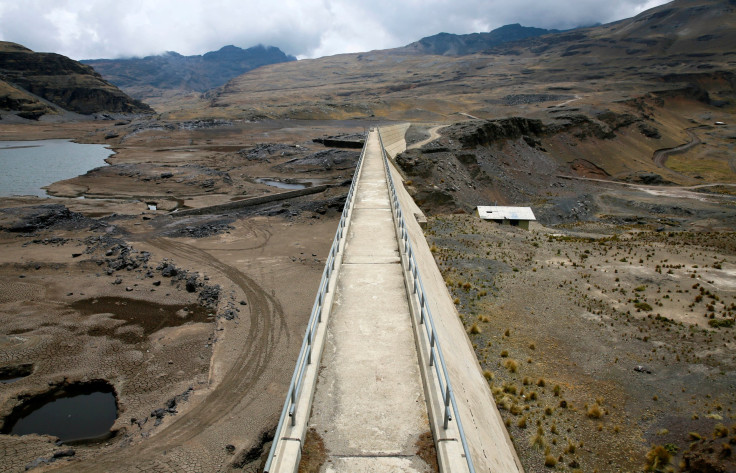Is The World Running Out Of Water? Bolivia Declares National Emergency Amid Drought

In the latest sign of the devastating impact of global warming, Bolivia’s government has declared a state of emergency in the wake of the country’s worst drought in 25 years. President Evo Morales made the announcement Monday, authorizing national and local governments to use state funds to attempt to control a crisis that has led to severe water rationing and protests in the South American nation.
Morales said during a press conference Bolivians “have to be prepared for the worst.” Earlier this month, neighborhoods in and around the capital of La Paz had a rationing plan imposed, forcing residents to go without water for 60 hours at a time before getting 12 hours of access. On Monday, that was extended to periods of three days without water and just three hours to replenish their supply.
With reservoirs supplying the capital almost dry, an estimated 125,000 families have been impacted by the drought. Ranchers, mainly in the city of Santa Cruz, have also recorded a loss of $149 million due to the drought, with 60,000 cattle dead, reported Bolivia’s La Razón. In three cities, including La Paz, the end of the school year has been brought forward by up to a week due to the shortage of water.
The drought is believed to have been exacerbated by the effects of the El Nino weather phenomenon, leaving dams at less than 10 percent of regular capacity. No rain is forecast until early December.
Bolivia's crisis is not a new problem. The Andean glaciers that supply much of the water to the world’s highest capital of La Paz have been melting rapidly in recent decades. In the last quarter of the 20th century, average temperatures in the tropical Andes rose around 0.6 F per decade, according the Union of Concerned Scientists. The Chacaltaya glacier, situated northwest of La Paz, disappeared entirely in 2009.
Around the world, a lack of water due to the effects of global warming has led to an increased reliance on underground aquifers. Many of the planet’s largest aquifers, supplying water to hundreds of millions of people, are now being rapidly depleted.
In 2004, a lack of access to water in Bolivia’s second largest city, El Alto, prompted residents to take to the streets in protest. As a result, the control of water was taken out of private hands and into those of the state.
Large protests have erupted again in El Alto over the latest drought. Last week, residents took water supply officials hostage, demanding a solution to the crisis.
Morales responded earlier this week by firing the head of the state water company and the director of the state water authority, as well as issuing an apology. He has now promised that funds will be diverted to drill wells and transport water to cities with the support of the country’s armed forces.
© Copyright IBTimes 2024. All rights reserved.




















